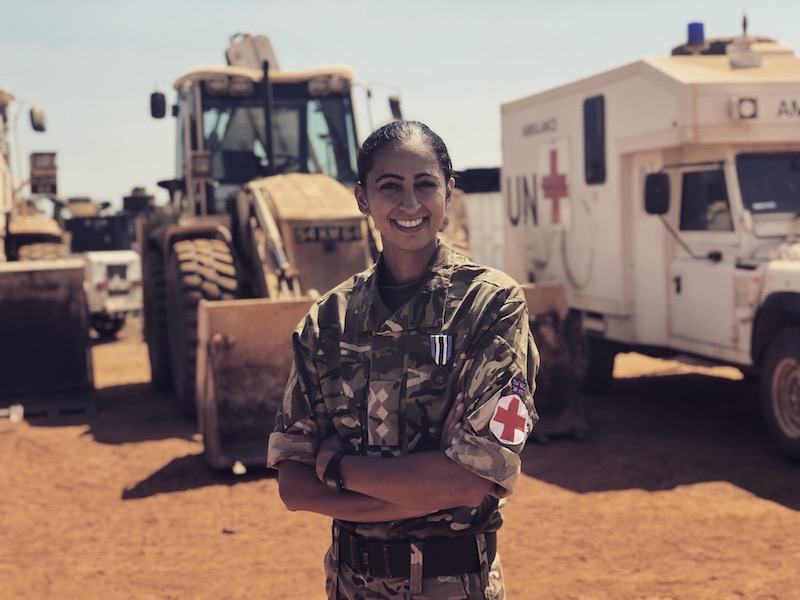At age 19, I joined the Army Reserves as a private soldier where I eventually commissioned in 2012.
I went to university to study Physiotherapy and my appetite for greater and greater challenges started to grow, starting with my first half marathon at 20 years old.
After completing my first marathon, I decided to try an ultra-marathon. Dusk till Dawn (50 miles in the Peak District) left me feeling very achy and sick but I had already caught the bug. The scale of my adventures started to grow and my definition of what is normal changed.
Aged 27, I decided to join the Regular Army and I have not looked back since. I have completed large scale exercises/deployments in Nepal, Kenya and a 6 month UN peacekeeping tour to South Sudan. Whilst in South Sudan (in addition to my duties as task-force Physiotherapist), I organised a 30 hour endurance event to raise money for charity. I completed the full 30 hours and UK soldiers would join me for anything between 1 and 12 hours. I believe the more we do the more we realise we are capable of and I continued to push my boundaries.
“Nothing is impossible” I’ve always had this idea that I can achieve something great, something that allows me to be a role model. I want my 10 year old niece to grow up without boundaries, knowing the possibilities of what you can achieve in life are endless. I decided I wanted to do an expedition in Antarctica not only to push my own boundaries but also to inspire others to push their boundaries too. I didn’t know anything about Antarctica or the Polar world 3 years ago but anything ambitious can feel out of reach at the beginning. I wanted to show people that everybody starts somewhere and I became the first woman of colour to complete a solo expedition in Antarctica on 3 Jan 2022.
My primary role is as a physiotherapist, to rehabilitate soldiers and officers in the Army. I recently completing my MSc in Sports and Exercise Medicine, part time, at Queen Mary’s University. I have always been interested in pushing the human body to its limits and this allowed me to look at this from a research perspective too.

